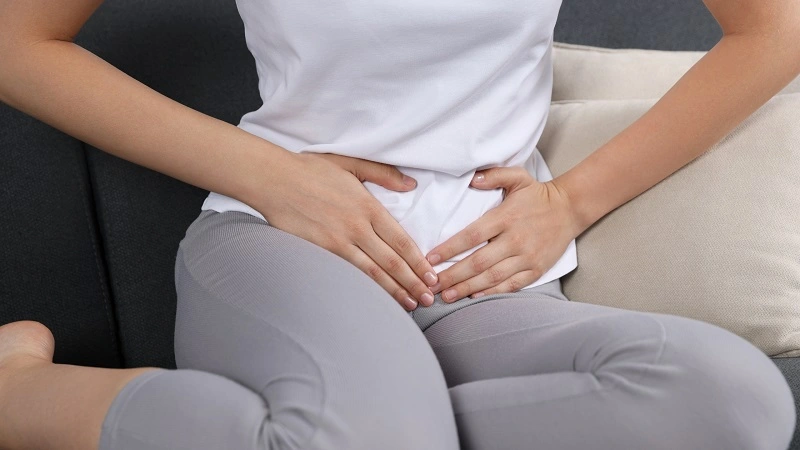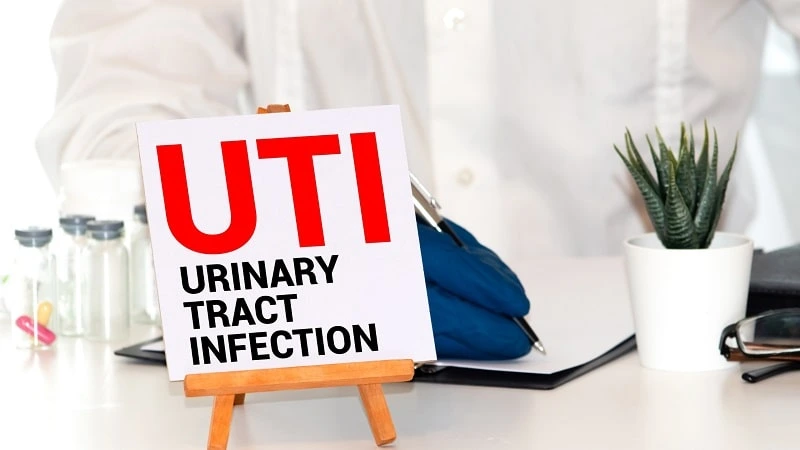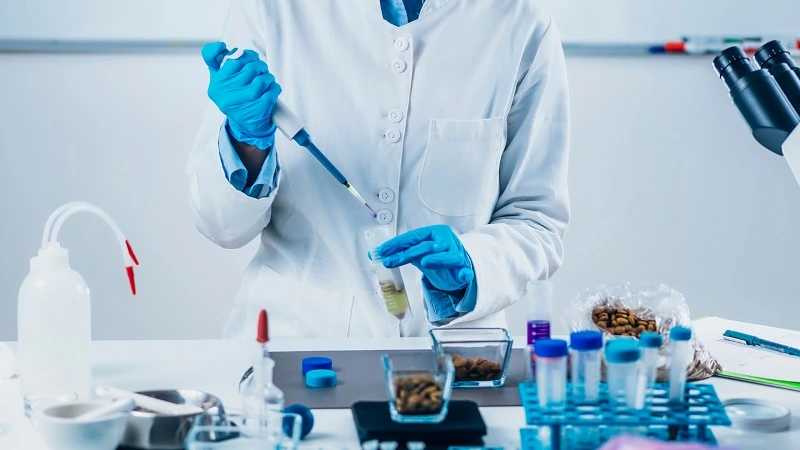Pain in lower abdomen and buttocks in female is a common complaint that can significantly impact daily life and overall well-being. This discomfort can arise from various underlying causes, ranging from benign to more serious conditions. Understanding the reasons behind such pain is crucial for proper diagnosis and effective treatment.
In this article, we will explore the potential causes of pain in the lower abdomen and buttocks in females, shedding light on both common and less frequently encountered conditions. From menstrual cramps and pelvic inflammatory disease (PID) to endometriosis and urinary tract infections (UTIs), we will delve into the symptoms, diagnostic procedures, and treatment options associated with these conditions.
By providing valuable insights, we aim to empower individuals to seek appropriate medical attention and find relief from the discomfort they may be experiencing.
Common Causes of Pain in Lower Abdomen and Buttocks in Females
Menstrual Pain and Cramps
Menstrual pain and cramps, medically known as dysmenorrhea, are prevalent causes of lower abdominal and buttock pain in females.
During menstruation, the uterus contracts to shed its lining, leading to discomfort and pain. This pain can radiate to the lower abdomen and buttocks, causing significant discomfort.
Managing menstrual pain involves over-the-counter pain relievers, applying heat to the affected area, and practicing relaxation techniques.

Pelvic Inflammatory Disease (PID)
PID is an infection of the female reproductive organs, primarily caused by sexually transmitted infections such as chlamydia or gonorrhea.
It can result in lower abdominal and buttock pain. Symptoms of PID include pelvic pain, abnormal vaginal discharge, painful urination, and fever.
Prompt treatment with antibiotics is essential to prevent complications and reduce pain.
Read More: What Doctor to See for Buttock Pain?
Endometriosis
Endometriosis occurs when the tissue that lines the uterus (endometrium) grows outside of it, often affecting the ovaries, fallopian tubes, and pelvic cavity.
This condition can lead to chronic pain in the lower abdomen and buttocks, especially during menstruation. Other symptoms may include heavy or irregular periods, pain during intercourse, and fertility issues.
Treatment options for endometriosis include pain medication, hormonal therapy, and, in severe cases, surgery.
Urinary Tract Infections (UTIs)
UTIs occur when bacteria enter the urinary tract, causing an infection. Along with urinary symptoms like frequent urination and a burning sensation, UTIs can cause pain in the lower abdomen and buttocks.
Prompt diagnosis and treatment with antibiotics are necessary to prevent the infection from spreading to the kidneys.

Ovarian Cysts
Ovarian cysts are fluid-filled sacs that develop on or within the ovaries. They can cause lower abdominal and buttock pain if they become enlarged or ruptured. Symptoms may include pelvic pain, bloating, and changes in menstrual patterns.
Treatment options for ovarian cysts vary depending on their size and characteristics, ranging from watchful waiting to surgical removal.
Read More: Can Ovarian Cyst Cause Hormonal Imbalance?
Less Common Pain in Lower Abdomen and Buttocks in Females
Uterine Fibroids
Uterine fibroids are noncancerous growths that develop within or on the uterus. Although they are generally benign, they can cause lower abdominal and buttock pain in some cases.
These fibroids can press on surrounding organs and tissues, leading to discomfort. Symptoms may also include heavy menstrual bleeding, frequent urination, and pelvic pressure.
Treatment options for uterine fibroids include medication to manage symptoms, hormonal therapy, or surgical interventions such as myomectomy or hysterectomy.
Ectopic Pregnancy
An ectopic pregnancy occurs when a fertilized egg implants and grows outside the uterus, typically in the fallopian tube.
This condition can cause severe lower abdominal and buttock pain, along with vaginal bleeding. Ectopic pregnancies are considered medical emergencies and require immediate attention.
Treatment options may involve medication to dissolve the pregnancy or surgical intervention to remove the embryo.

Gastrointestinal Issues
Certain gastrointestinal conditions can contribute to lower abdominal and buttock pain in females.
For example, irritable bowel syndrome (IBS) can cause cramping and discomfort in the lower abdomen, often accompanied by changes in bowel movements.
Inflammatory bowel disease (IBD), such as Crohn’s disease or ulcerative colitis, may also manifest with lower abdominal pain.
Additionally, constipation can lead to pain and pressure in the lower abdomen and buttocks. Management of these conditions may involve dietary modifications, medication, and lifestyle changes.
Seeking Medical Help
When experiencing pain in the lower abdomen and buttocks, it is important to consult a healthcare professional for an accurate diagnosis and appropriate treatment.
Prompt medical attention can help identify the underlying cause of the pain and alleviate discomfort. Here are some key points to consider when seeking medical help:
Importance of Consulting a Healthcare Professional
Seeking medical advice is crucial as it allows for a comprehensive evaluation of symptoms, medical history, and potential risk factors.
A healthcare professional, such as a gynecologist or primary care physician, can conduct a physical examination, order relevant tests, and provide expert guidance tailored to the individual’s needs.
When to Seek Immediate Medical Attention
Certain situations require immediate medical attention. If experiencing severe or sudden-onset pain in the lower abdomen and buttocks, accompanied by symptoms like heavy bleeding, dizziness, fainting, or difficulty breathing, it is important to seek emergency medical care.
These symptoms may indicate a serious condition such as ectopic pregnancy or a ruptured ovarian cyst.
Effective Communication with Healthcare Providers
To ensure a thorough evaluation, it is essential to communicate symptoms clearly and provide relevant information about the pain, including its location, intensity, duration, and any factors that exacerbate or alleviate it.
Sharing details about menstrual cycles, sexual activity, and any recent changes in health can assist healthcare professionals in making an accurate diagnosis.
Diagnostic Procedures and Tests
Depending on the suspected cause of the pain, healthcare providers may recommend various diagnostic procedures and tests.
These can include pelvic examinations, ultrasound scans, blood tests, urine tests, or imaging studies. These investigations aim to identify the underlying condition and guide appropriate treatment.

Follow-Up and Treatment
Once a diagnosis is made, healthcare professionals can discuss treatment options and develop a management plan.
Treatment may involve medication, lifestyle modifications, physical therapy, or, in some cases, surgical interventions.
It is important to follow the recommended treatment plan and attend scheduled follow-up appointments to monitor progress and address any concerns.
Conclusion
Pain in the lower abdomen and buttocks among females can have various causes, ranging from common conditions like menstrual pain and pelvic inflammatory disease to less common ones such as uterine fibroids and ectopic pregnancy.
Seeking medical help is crucial for an accurate diagnosis and appropriate treatment. By consulting healthcare professionals, individuals can receive personalized care, undergo necessary tests, and explore suitable treatment options.
Effective communication with healthcare providers and timely follow-up appointments are vital for the successful management of pain.
It is important to remember that each individual’s experience may differ, and seeking professional advice is essential for tailored care.
By addressing the underlying causes of lower abdominal and buttock pain, individuals can improve their quality of life and overall well-being.
FAQs
What can I do to relieve menstrual pain and cramps?
Answer: Applying heat, taking over-the-counter pain relievers, and practicing relaxation techniques can help alleviate menstrual pain and cramps.
How can I prevent pelvic inflammatory disease (PID)?
Answer: Using barrier methods during sexual activity, practicing safe sex, and getting regularly tested for sexually transmitted infections can help prevent PID.
Are there any non-surgical treatments for endometriosis?
Answer: Non-surgical treatments for endometriosis include hormonal therapy, pain medication, and lifestyle modifications. Surgery may be considered in severe cases.
Can urinary tract infections (UTIs) cause severe pain in the lower abdomen?
Answer: Yes, UTIs can cause pain in the lower abdomen. Prompt treatment with antibiotics is important to prevent complications.
What are the treatment options for ovarian cysts?
Answer: Treatment for ovarian cysts varies based on their size and characteristics. Options may include watchful waiting, medication, or surgical removal.
What are the symptoms of ectopic pregnancy?
Answer: Symptoms of ectopic pregnancy include severe lower abdominal and buttock pain, vaginal bleeding, dizziness, and fainting. Immediate medical attention is required.
How can gastrointestinal issues cause lower abdominal and buttock pain?
Answer: Conditions like irritable bowel syndrome (IBS), inflammatory bowel disease (IBD), and constipation can cause lower abdominal and buttock pain due to inflammation and bowel irregularities.
When should I seek immediate medical attention for lower abdominal and buttock pain?
Answer: Seek immediate medical attention if you experience severe pain, heavy bleeding, dizziness, fainting, or difficulty breathing along with the pain.
How often should I follow up with my healthcare provider for ongoing pain management?
Answer: Follow the recommended schedule set by your healthcare provider for regular follow-up appointments and monitoring of your condition.
Medical References
- American College of Obstetricians and Gynecologists. (2018). Dysmenorrhea: Painful Periods.
- Mayo Clinic. (2021). Pelvic Inflammatory Disease (PID).
- American Society for Reproductive Medicine. (2021). Endometriosis.
- National Institute of Diabetes and Digestive and Kidney Diseases. (2017). Urinary Tract Infection (UTI) in Adults.
- Mayo Clinic. (2021). Ovarian Cysts.
- American College of Obstetricians and Gynecologists. (2018). Ectopic Pregnancy.



